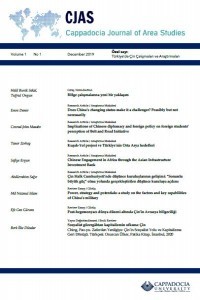Brouwers, Arnout. Rodina: Tussen lethargie en revolutie. Amsterdam: Atlas Contact. 2018. 350 pp.
Rodina: tussen lethargie en revolutie [“Rodina: between lethargy and revolution”] is the first book by journalist Arnout Brouwers, who was previously the Russia correspondent for De Volkskrant – a leading Dutch newspaper. As noted by Amelink (2018), there are numerous initiatives related to the Russian language, culture and society in the Netherlands, and this level of interest is reflected in the growing number of Dutch-language works of literary non-fiction, documentaries and online resources concerning Russia and the post-Soviet space. Aimed primarily at a popular readership, Rodina is a work of non-fiction that draws upon the author’s experiences during his posting in Moscow between 2006 and 2013, providing an overview of some of his travels around Russia and its neighbours. Brouwers notes in the foreword that his aim in the book is to provide a different picture of Russia to the one commonly projected in the West – a worthy objective, and one that is pursued in a novel and interesting manner.
Anahtar Kelimeler:
Brouwers, Arnout, Rodina: Tussen lethargie en revolutie
Brouwers, Arnout. Rodina: Tussen lethargie en revolutie. Amsterdam: Atlas Contact. 2018. 350 pp.
Rodina: tussen lethargie en revolutie [“Rodina: between lethargy and revolution”] is the first book by journalist Arnout Brouwers, who was previously the Russia correspondent for De Volkskrant – a leading Dutch newspaper. As noted by Amelink (2018), there are numerous initiatives related to the Russian language, culture and society in the Netherlands, and this level of interest is reflected in the growing number of Dutch-language works of literary non-fiction, documentaries and online resources concerning Russia and the post-Soviet space. Aimed primarily at a popular readership, Rodina is a work of non-fiction that draws upon the author’s experiences during his posting in Moscow between 2006 and 2013, providing an overview of some of his travels around Russia and its neighbours. Brouwers notes in the foreword that his aim in the book is to provide a different picture of Russia to the one commonly projected in the West – a worthy objective, and one that is pursued in a novel and interesting manner.
Keywords:
Brouwers, Arnout, Rodina: Tussen lethargie en revolutie,
- Başlangıç: 2019
- Yayıncı: Kapadokya Üniversitesi
Sayıdaki Diğer Makaleler
Donald Trump döneminde ABD’nin Afrika politikası: Farklar, beklentiler ve gerçekler
AB’nin güvenlik endişelerinde NATO ve AUKUS’un etkileri
Brouwers, Arnout. Rodina: Tussen lethargie en revolutie. Amsterdam: Atlas Contact. 2018. 350 pp.
Küresel Güney bağlamında iklim etiği ve iklim adaleti uygulamaları
